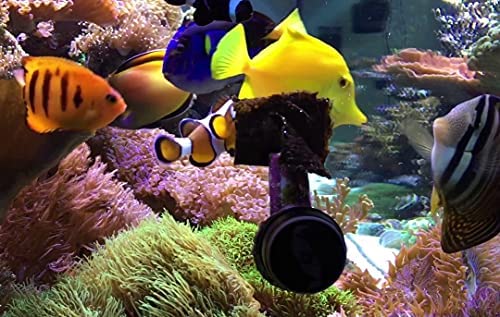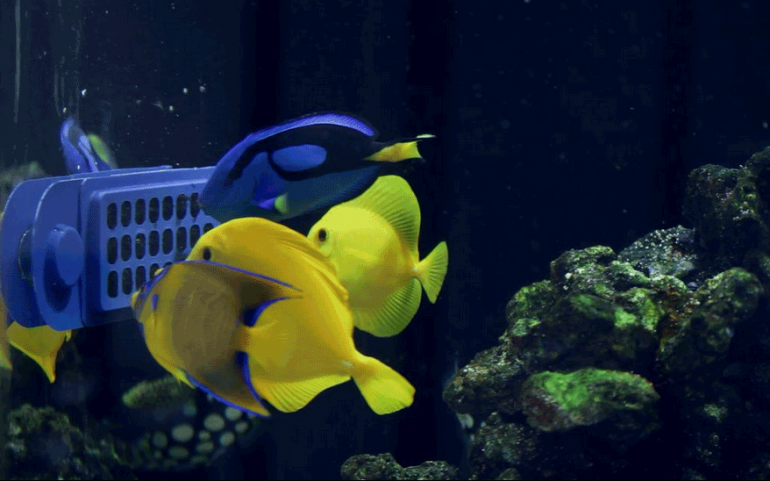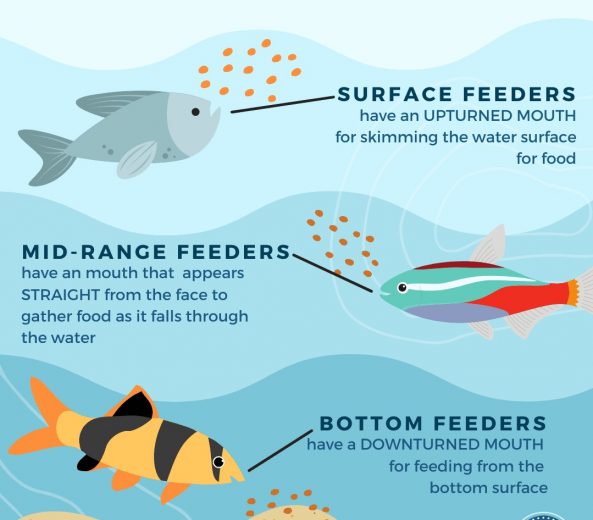- Your cart is empty
- Continue Shopping
Marine Fish Food Type and Facts – 2023

Marine fish are a diverse group of animals that inhabit the world's oceans, seas, and coral reefs. These fish come in a wide range of shapes, sizes, and colors, and they play important roles in the marine ecosystem. In order to stay healthy and thrive, marine fish need a varied and nutritious diet.
There are many different types of food available for marine fish, and the best choice will depend on the specific needs of the fish and the conditions of the aquarium. Some common options include flakes, pellets, freeze-dried, frozen foods, and live or fresh foods. It is important to choose a high-quality food that provides a balanced ratio of nutrients and is appropriate for the species of fish being kept.
One of the key differences between marine and freshwater fish is their need for added minerals and trace elements. The seawater in which marine fish live naturally contains a variety of minerals and trace elements that are essential for their health. In an aquarium, these minerals and elements must be replaced on a regular basis to maintain the proper balance.
One way to ensure that marine fish are getting the nutrients they need is to feed them a varied diet that includes a mix of different types of food. This can help to provide a balance of proteins, fats, carbohydrates, vitamins, and minerals. Some common ingredients found in marine fish food include seafood such as fish, shrimp, and squid, as well as seaweed and algae.
One important factor to consider when feeding marine fish is the size and shape of the food. The size of the food should be appropriate for the size of the fish, and the shape should be such that the fish can easily consume it. Smaller, soft-bodied fish may have difficulty eating larger pellets or flakes, while larger fish may be able to chew and digest them more easily.
It is also important to pay attention to the feeding habits of individual fish species. Some marine fish are opportunistic feeders that will eat whatever food is available, while others are more selective and may only feed on certain types of food. For example, herbivorous species such as tangs and surgeonfish may need a higher proportion of plant matter in their diet, while carnivorous species like groupers and snappers may need more protein.
In addition to their regular diet, marine fish may benefit from the occasional supplementation of specific nutrients. For example, herbivorous species may need additional sources of plant matter, while carnivorous species may benefit from the addition of vitamin-rich foods such as brine shrimp or bloodworms. It is also a good idea to offer a variety of live or frozen foods as a treat, as these can provide a more natural and varied diet for the fish.
One thing to be aware of when feeding marine fish is the risk of overfeeding. Too much food can lead to excess waste in the aquarium, which can pollute the water and lead to health problems for the fish. It is important to follow the recommended feeding guidelines and to monitor the amount of food being consumed to ensure that the fish are getting the nutrients they need without being overfed.
Proper nutrition is essential for the overall health and well-being of marine fish. By choosing the right type of food and following good feeding practices, you can help to ensure that your fish are getting the nutrients they need to thrive in their aquarium environment.

Here are a few more things to consider when feeding marine fish
Feeding frequency: The frequency of feeding can depend on the type of fish, the size of the aquarium, and the type of food being used. As a general rule, it is better to feed small amounts of food several times a day rather than a large amount once a day. This helps to prevent overfeeding and reduces the amount of uneaten food that can pollute the water.
Water quality: Proper water quality is essential for the health of marine fish. This includes maintaining the correct pH level, temperature, and levels of dissolved oxygen and ammonia. A dirty or unhealthy aquarium can make it more difficult for fish to digest their food and can lead to health problems. Regular water changes and the use of a good-quality filter can help to maintain the quality of the water.
Supplements: In addition to their regular diet, marine fish may benefit from the occasional supplementation of specific nutrients. For example, herbivorous species may need additional sources of plant matter, while carnivorous species may benefit from the addition of vitamin-rich foods such as brine shrimp or bloodworms.
Live or fresh foods: In addition to commercial fish food, marine fish can also be fed a variety of live or fresh foods. This can include small crustaceans such as brine shrimp or krill, worms, mollusks, and even small pieces of fresh seafood or vegetables. Live or fresh foods can provide a more natural and varied diet for the fish and can be a tasty treat.
Feeding equipment: Depending on the type of food being used, you may need different feeding equipment. For example, flakes and pellets can be easily dispensed using a feeding block or an automatic feeder, while freeze-dried and frozen foods may require a separate feeding spoon or tongs. It is also a good idea to have a separate container for each type of food to prevent contamination.

By following these tips, you can help to ensure that your marine fish are getting the nutrients they need to stay healthy and thrive in their aquarium environment.

